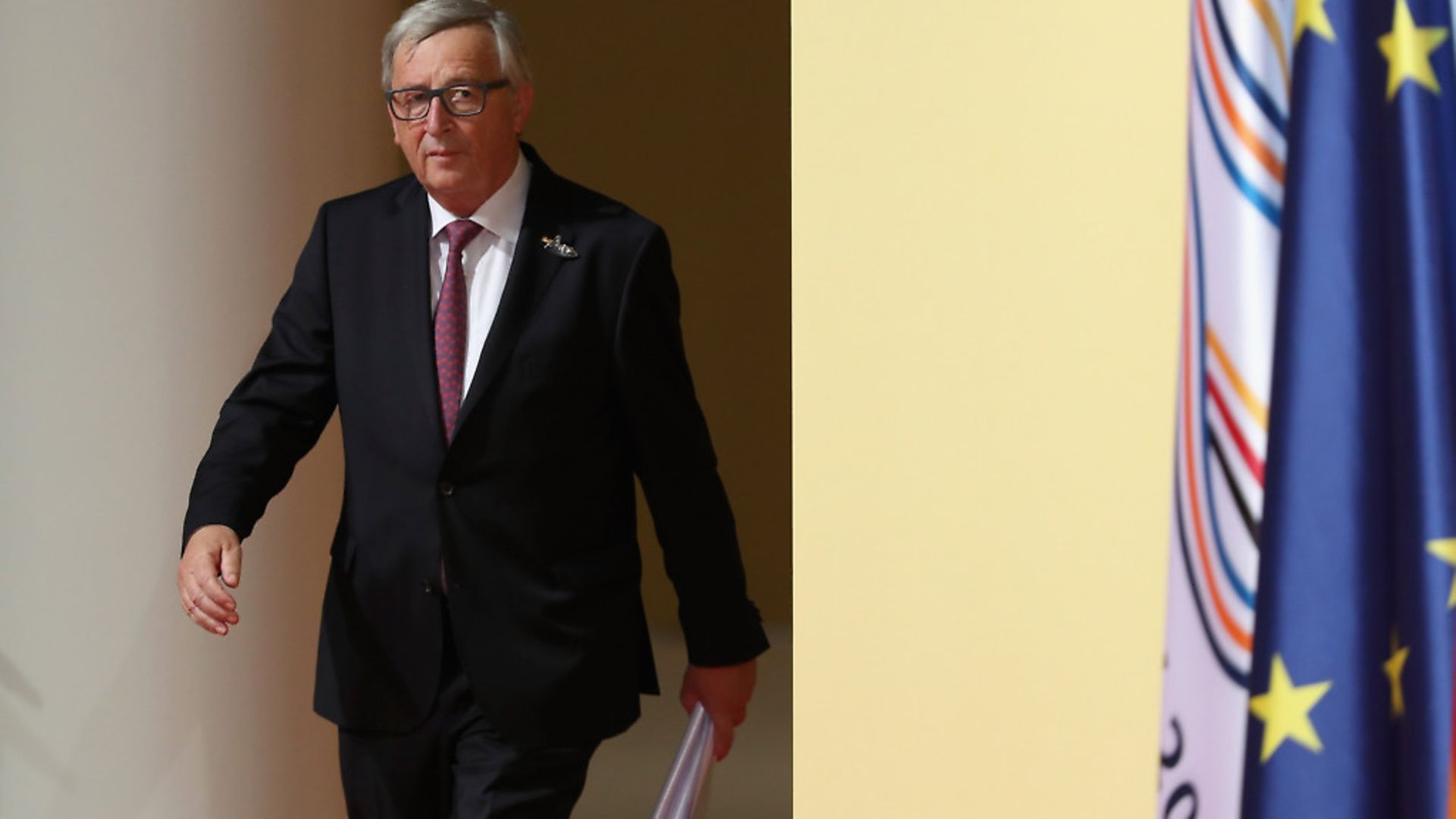
The European Commission president has sent a dire warning to the UK over Brexit: ‘You will regret your decision.’
Jean-Claude Juncker said things ‘cannot remain as they are’ for the UK in its relationship with the EU after leaving the bloc.
Addressing the European Parliament, Juncker was cheered by Eurosceptic MEPs as he noted the UK’s departure was due on March 29, 2019.
Responding to their applause, Juncker said the time would come ‘when you will regret your decision’.
But former UKIP leader Nigel Farage claimed the European Commission was seeking to ‘bully’ the UK and suggested Theresa May should back a departure from the bloc without a transition deal.
In a message to May ahead of next week’s European Council summit, Juncker said the EU needed ‘more clarity on how the UK sees its future relationship’.
He added that ‘cherry-picking is not going to be possible’ in the future trade relationship between the UK and EU.
‘I would rather have preferred Britain not to have decided to leave the European Union, but anyone who leaves the European Union has to know, frankly, what this means,’ he said.
‘If you decide to jettison, leave behind, the common agreements and rules, then you have to accept that things cannot remain as they are.’
Juncker said the controversial ‘backstop’ proposal for dealing with the border between Northern Ireland and the Republic ‘translates faithfully’ the agreement reached between May and the EU in December.
He said the EU was ready to work with the UK on its preferred option of the border issue being resolved in the future trade deal, or by other specific measures.
But he added ‘we need to receive concrete proposals from the UK first’.
Juncker said: ‘The 27 member states stand firm and united when it comes to Ireland. For us this is not an Irish issue, it is a European issue.’
Brussels’ chief Brexit negotiator Michel Barnier said May’s decision to leave the single market and customs union was ‘closing doors’ to possible models of future co-operation.
He added that it was a ‘rather surprising idea’ to think the EU could accept convergence in some areas ‘and at the same time open up the possibility for divergence when there is a comparative advantage to be had’ for the UK.
‘It’s time to face up to the hard facts,’ he said.
‘The UK is choosing to leave the union, the single market and the customs union, we have noted that.
‘Do they also want to distance themselves from our regulatory model, the one that we have constructed together with you – and you with us – for 44 years?’
Warning: Illegal string offset 'link_id' in /mnt/storage/stage/www/wp-includes/bookmark.php on line 357
Notice: Trying to get property 'link_id' of non-object in /mnt/storage/stage/www/wp-includes/bookmark.php on line 37






